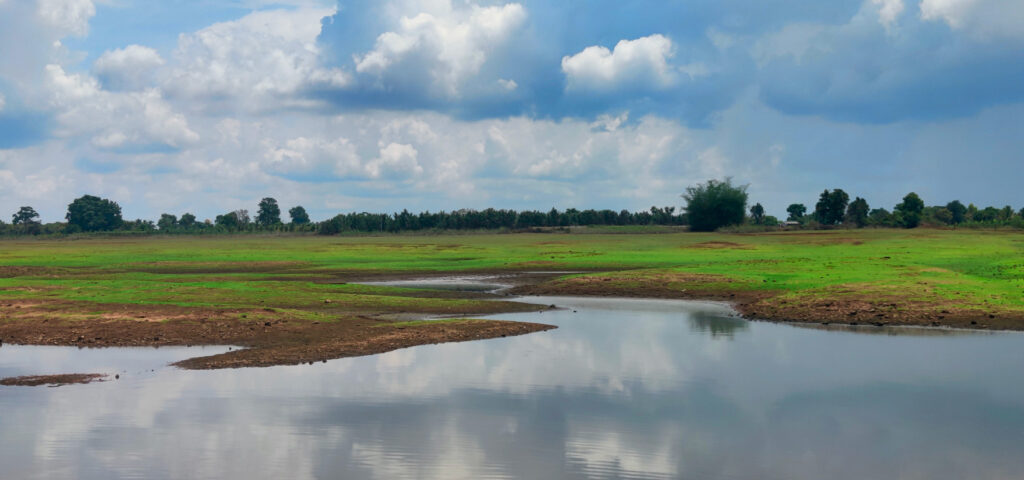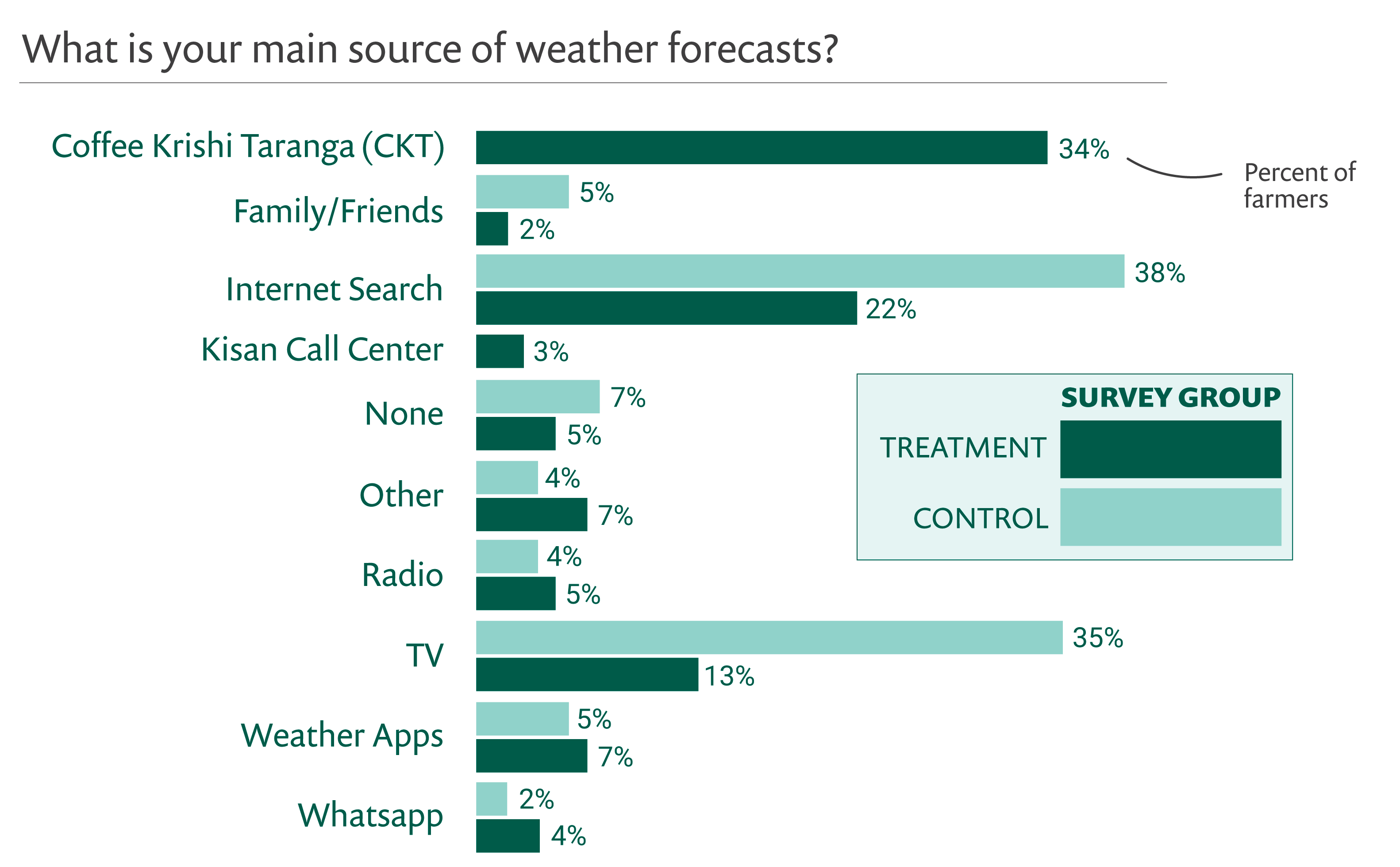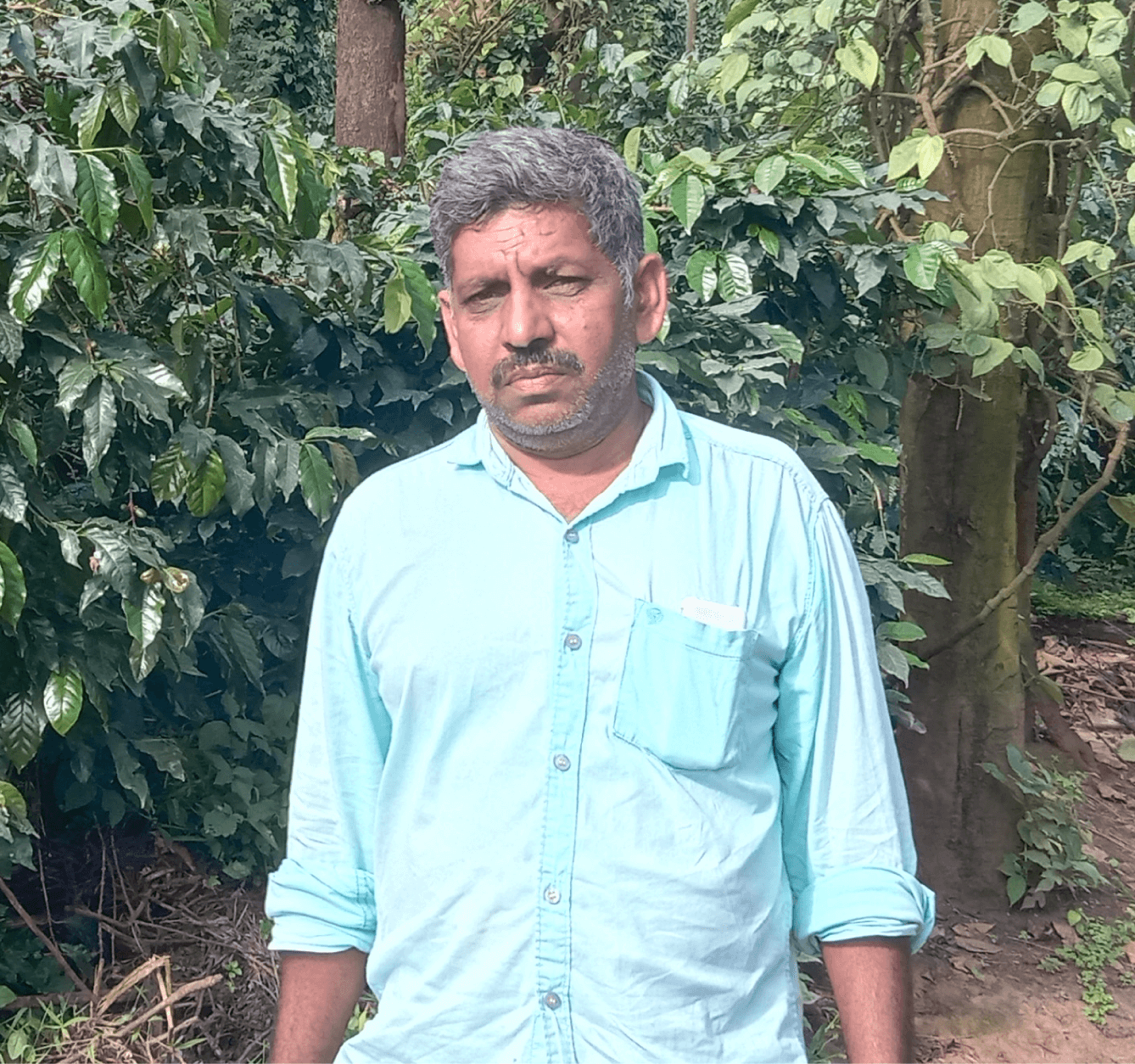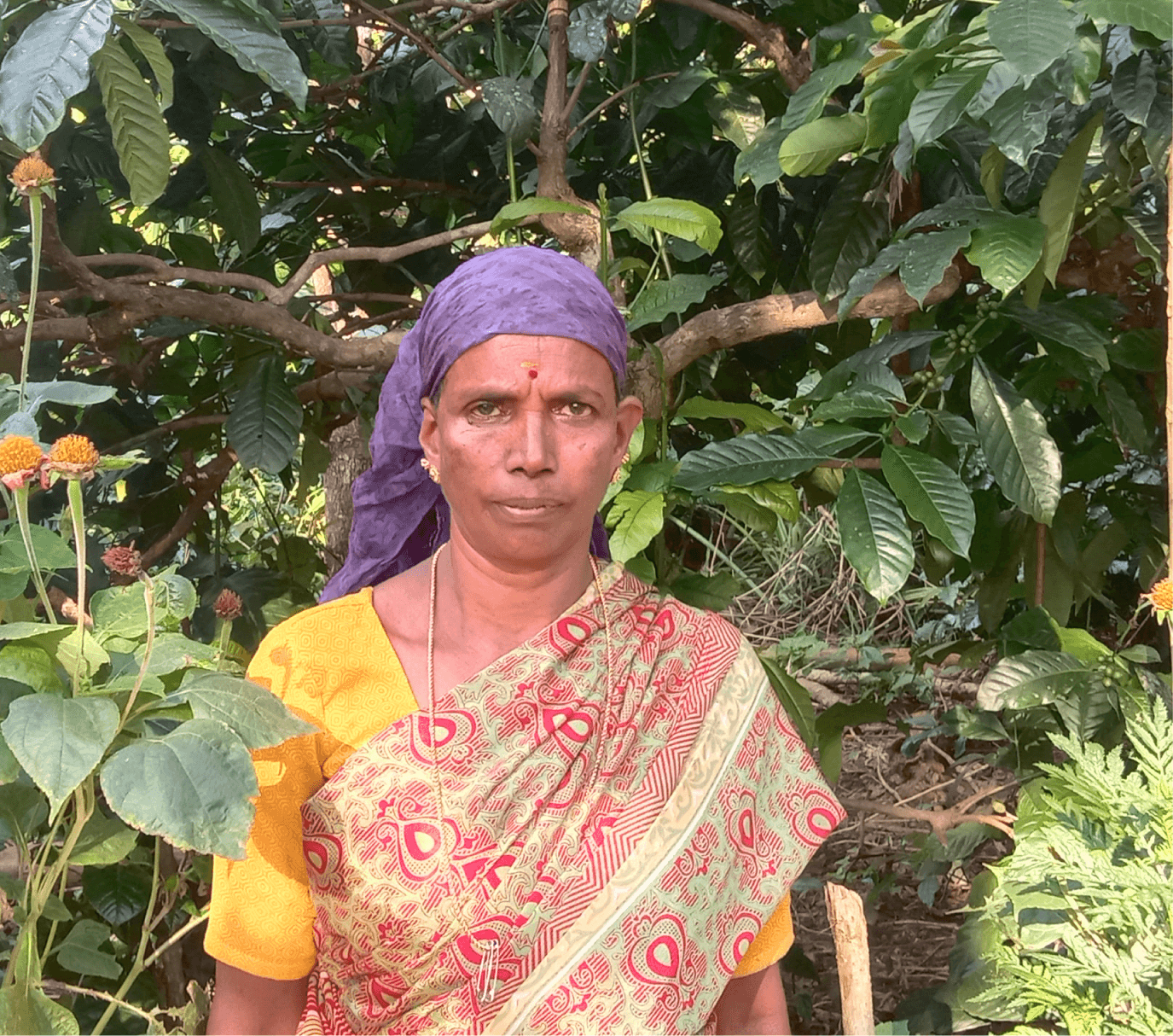Precision Forecasting: Supporting Coffee Farmers in Karnataka, India
- January 3, 2025
- 7 minutes read
Welcome to From Sky to Soil, PxD’s new blog series showcasing our innovative weather services designed to support smallholder farmers.
In this inaugural post, we spotlight an exciting weather initiative tailored for coffee farmers in Karnataka, India. Designed to help them navigate the challenges of unpredictable weather, this service equips farmers with actionable insights to optimize crop yields and safeguard their livelihoods – no matter what the skies bring.

The Challenge
With climate change intensifying, accurate and reliable weather information is critical for smallholder farmers. Unfortunately, access to such information remains inconsistent, leaving weather-sensitive crops like coffee particularly vulnerable.
The Opportunity
Farmers are eager to embrace weather data to make informed decisions:
- 76% of surveyed farmers trust in the accuracy of forecasts.
- 91% recalled receiving Coffee Krishi Taranga (CKT) weather forecasts. More on this service below.
- Nearly 80% report using these forecasts to optimize practices such as nutrient management and pruning.
Addressing the Unmet Need for Quality Weather Information
As climate change accelerates, farmers face increasing risks that threaten crop yields, the environment and their livelihoods (Shah et al., 2021). To address these challenges, farmers need accurate and timely weather forecasts to inform critical decisions (Pujahari et al., 2022).
Short-range forecasts guide daily activities, while medium- and long-range forecasts enable strategic planning for tasks like planting and harvesting. This need is especially acute for
weather-sensitive crops like coffee, which are heavily impacted by changing rainfall patterns (Bilen et al., 2022).
In Karnataka, where over 90% of coffee farmers are smallholders managing plots of 10 hectares or less, unpredictable rainfall disrupts production and poses significant challenges (PxD). Despite this, access to reliable weather forecasts remains limited. A 2021 PxD survey revealed that while 92% of coffee farmers reported facing weather-related challenges the previous year, only 16% had access to weather forecasts (PxD 2022).
Providing accurate and accessible weather information can be transformative. With the right tools, coffee farmers in Karnataka can better navigate climate uncertainty, make informed decisions, and safeguard their livelihoods for a sustainable future.

Testing and Piloting a Weather Service
Precision Development (PxD), in collaboration with the Coffee Board of India, developed Coffee Krishi Taranga (CKT) – a two-way voice-based advisory service that provides over 130,000 coffee farmers across Andhra Pradesh, Karnataka, Kerala, and Tamil Nadu with timely and actionable agronomic advice.
In 2024, with support from the Walmart Foundation and the iCare Innovation Fund – an initiative by the Asian Disaster Preparedness Center (ADPC) in Bangkok, PxD piloted a weather forecast service in Karnataka, India. This pilot aimed to explore how coffee farmers respond to precise, hyper-local, and customized rainfall forecast information. The pilot engaged 25,000 coffee farmers in the key coffee-growing districts of Chikmagalur, Hassan, and Kodagu, where the majority of plantations are smallholdings.
In its initial phase, the pilot tested the effectiveness of 5-day forecasts paired with agronomic advice, assessing how this information influences farmers’ decision-making and farming practices.
Farmer-Centric Service Design
Using lab-in-the-field methods, the PxD team engaged directly with farmers to assess which types of forecasts would be most beneficial. A key insight was that farmers are highly sensitive to forecast accuracy, especially early on, as this builds trust and confidence in the service. For more details on our findings, click here.
Delivering accurate and actionable forecasts involved processing forecast data at a granular sub-geographical level, and tailoring it to individual farmer locations. To address this, PxD’s engineering team developed a fully automated audio-stitching technology. This system generates customized voice message files in the local language, Kannada, tailored to each farmer’s specific location.
By overcoming the limitations of text-to-speech engines for less commonly supported languages, this audio-stitching technology ensures accessibility and adoption, empowering farmers to make informed decisions with local-specific weather information.
Positive Farmer Feedback
To assess the service’s effectiveness, we conducted a randomized rollout. Farmers were randomly assigned to either the “treatment group” (which received the forecasts) or the “control group” (which did not). Since launching the weather forecast service, we’ve seen strong participation. From June 2024 onwards, over 70% of farmers have answered calls, and call listening rates consistently exceeded 75%, indicating high levels of engagement.
Feedback surveys from a sub-sample of users in both the treatment and control groups revealed notable insights. Among the treatment group, 34% of the farmers relied on CKT as their primary source of weather forecasts. In contrast, the control group primarily used the Internet (38%) and TV (35%) for weather (Figure 1). These findings demonstrate early promise and traction for the service.

91% of farmers recalled receiving CKT’s forecasts in the past month, with 77% listening to the entire message, highlighting strong engagement with the service. Furthermore, 79% of farmers reported using the forecasts to plan critical activities like nutrient management and pruning, underscoring the service’s value in supporting informed decision-making. In terms of trust, 76% of farmers expressed a positive level of confidence in CKT. These early findings demonstrate that accurate and reliable weather information is not only in high demand but also plays a crucial role in helping farmers optimize their farming practices.
Genuine Stories, Tangible Impact
My name’s A B Prasanna, and I’m from Arehalli in Belur taluk. I’ve been growing Arabica and Robusta coffee for nearly 25 years now. For the last 4-5 years, I’ve been getting coffee farming tips through the Coffee Krishi Taranga (CKT) service on the phone, and honestly, it’s been a big help.
When I first started using it, they’d send updates on coffee prices, tell us what work to do and when, share tips on handling diseases, and explain why applying lime is important. Recently, they’ve started giving weather forecasts, too, and that’s been super useful for us coffee growers. We plan our work based on what they say. For example, if they say it’s going to rain in 3-4 days, we wait to apply manure. If they predict dry weather, we go ahead with manure application and spraying.
The forecasts are much more accurate than what we hear on the radio or TV, and it’s made a huge difference in how we plan our work. I even share the updates with my neighbors and friends. I really think this service should be expanded so more coffee growers like us can benefit from it in the future.
Namaskara, I’m Vijayalakshmi from Hiregarje Village in Belur Taluk, Hassan District. I have about 20 guntas of land where I grow pepper, coffee, and other crops. I’ve been listening to the Coffee Krishi Taranga service for the past three years and found it helpful.
They give us advice on all the important stuff—like when to apply fertilizers, when to do pruning, and how to manage shade. I’ve learned so much from it, and I always use their tips on my farm.
Recently, they’ve started sharing weather forecasts, and let me tell you, it’s been a huge help. For example, if they say there’s going to be heavy rain, we hold off on applying manure. And when it’s raining nonstop, we know shade management won’t be possible, so we plan accordingly.
The weather updates from Coffee Krishi Taranga are far more accurate than what we hear from other sources, so we trust them completely. It’s especially useful when drying coffee—knowing the weather ahead of time makes a big difference. I really hope they keep sharing this kind of information because it’s helping us a lot. I even share it with my neighbors, and they find it really useful too.
Expanding the Reach: The Future of Weather Service for Farmers
Building on these promising insights, PxD plans to expand its weather service to support 50,000 coffee farmers in Karnataka. As we refine the service, we’re exploring various forecast formats to determine which best aids farmers’ decision-making, integrating other forecast sources and dissemination channels, and exploring future scaling to additional regions.
As we transition the service to the Coffee Board, we will leverage PxD’s successful Build, Operate, and Transfer model to ensure that weather services are effectively integrated, empowering farmers to manage weather-related risks in the long term.

Stay Updated with Our Newsletter

Make an Impact Today




